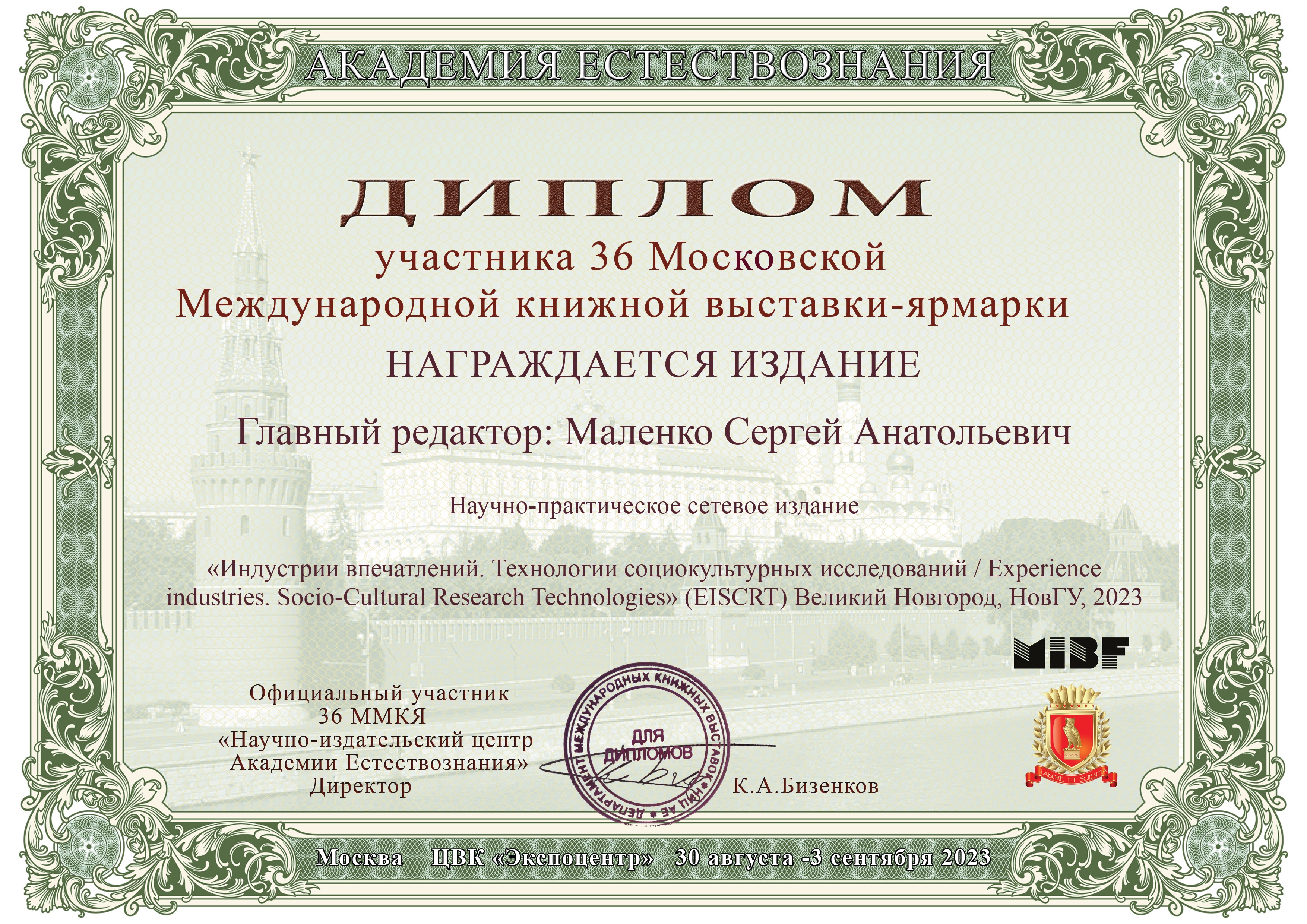УСЛУЖИТЬ ИНДУСТРИЯМ НОСТАЛЬГИИ: МИФОЛОГИЯ СОВЕТСКОГО ЧЕБУРАШКИ В ЛАБИРИНТАХ ПОТРЕБИТЕЛЬСКОЙ БЕЗЫСХОДНОСТИ
DOI:
https://doi.org/10.34680/EISCRT-2024-2(7)-86-126Ключевые слова:
архетипическая семья, мифология Чебурашки, детство, фильм «Чебурашка», социализация, ностальгия по советскому, СССР, компенсация, одиночество, отчуждение, индивидуация, СВОАннотация
В статье анализируется феномен фильма Дмитрия Дьяченко «Чебурашка», премьера которого состоялась 23 декабря 2022 года в кинотеатре «Каро 11 Октябрь». Авторы пытаются объяснить небывалый коммерческий успех проекта не столько неординарностью маркетинговых стратегий его команды, сколько наличием в современном российском обществе определенных мифологизированных образов, репрезентирующих непрерывно возрастающую ностальгию по СССР. Опираясь на социологические данные, авторы делают вывод, что актуализация образа Чебурашки в этот период полностью соответствует крайнему драматизму того непростого этапа, в котором находится Россия, что во многом объясняет возрождение массового очарования от советского прошлого и связанных с ним созидательных символов. Поэтому взрывной интерес представителей всех поколений к этой картине неразрывно связан со стремлением россиян к проверенным временем визуальным образам счастливой, спокойной и мирной жизни. С другой стороны, в стремлении преодолеть отчуждение и одиночество, которые являются главными внутренними вызовами для российского общества, посредством переживания советского опыта индивидуации, на котором формировались целые поколения, авторы усматривают действие мощного компенсационного механизма. Поэтому изучение образа Чебурашки приобретает значимые социокультурные и политико-идеологические смыслы, способные консолидировать российское общество на решающем этапе его цивилизационного развития.
Для цитирования статьи:
Некита, А. Г., & Маленко, С. А. (2024). Услужить индустриям ностальгии: мифология советского Чебурашки в лабиринтах потребительской безысходности. Индустрии впечатлений. Технологии социокультурных исследований (EISCRT), 2 (7), 86-126. https://doi.org/10.34680/EISCRT-2024-2(7)-86-126








